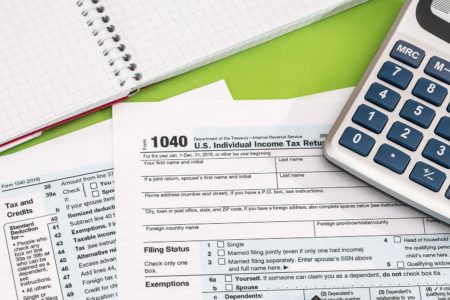Are Back Taxes Haunting You Like a Ghost From Your Past?
Don’t let the IRS scare you. Get help. Call Tax Defense Network today!
Less Than 2 Minutes Could Save You Thousands.
How to File Back Taxes
The easiest way to resolve back taxes is to file your late tax returns. If you are due a refund, just remember that the clock is ticking. You only have three years from the original tax deadline to submit your return and claim your money. To avoid further delays, follow these steps for filing your overdue taxes:
Gather Your Documents
First, you’ll want to locate your W-2 and 1099 forms for the tax years you’re filing for, as well as any other information on income earned for that period. You can also request your wage and income transcript from the IRS, or contact your previous employer(s).
Prepare Your Returns
Any tax returns from previous years must be filed using the specific tax rules and instructions for those years. If you use incorrect forms or guidelines, it can cause even more problems for you.
Complete an Installment Agreement Request
If you owe taxes on your unfiled returns and can’t pay, you’ll want to set up an installment agreement with the IRS. This allows you to pay your tax debt by making monthly payments instead of one lump sum.
Request Penalty Relief
If you only have one past-due tax return, you may be eligible for first-time penalty abatement. This can help erase, or reduce, filing and payment penalties that will be assessed to your overdue return.
Submit Your Return
Late tax returns can only be filed on paper and must be sent to your local IRS Service Center either by postal mail or delivered in person. Be sure to use certified mail, so you have proof that the IRS received your return(s). Each return should be sent in a separate envelope to avoid potential confusion or clerical errors.
Dealing with unfiled tax returns and back taxes can be daunting. Since tax regulations vary by year, it is critical that you use the correct information, or you’ll only make matters worse. Enlisting the help of a tax professional, like those at Tax Defense Network, is strongly recommended. Our tax experts have decades of experience in filing late returns and helping taxpayers get back on their feet.
Consequences of Unpaid Taxes
Although there may be legitimate reasons why you owe unpaid taxes, ignoring the issue will not make your tax debt go away. The IRS keeps a list of every taxpayer who is required to file a tax return but fails to do so. It’s similar to the naughty list, but the consequences are far worse than a lump of coal. If you have unfiled tax returns or owe back taxes, you could face the following:
Penalties
The IRS can hit you with a failure-to-file penalty for any missing tax returns, as well as a failure-to-pay penalty for unpaid taxes. If your return is 60 days or more overdue, the minimum penalty is $435 or 100% of the taxes due (whichever is smaller). For each month your return is unfiled, you will be charged a 5% penalty fee on the tax owed (up to 25%). If you’ve filed, but haven’t paid, the penalty is reduced to .5% per month. The maximum penalty, however, is 25% of your unpaid taxes.
Tax Lien
The government can place a tax lien against your property to ensure your tax debt is paid before any other creditors.
Wage Garnishment
If you owe taxes, the IRS can garnish your wages to satisfy the debt.
Bank Levy
A hold may be placed on your bank accounts and the funds seized to cover your unpaid taxes.
Seizure of Assets
The IRS can also seize your personal property, such as automobiles, boats, or other items of value, to satisfy your overdue taxes.
Don’t let back taxes ruin your life. Take control by calling Tax Defense Network today. We can help you avoid the costly consequences of ignoring your unpaid tax debt.


